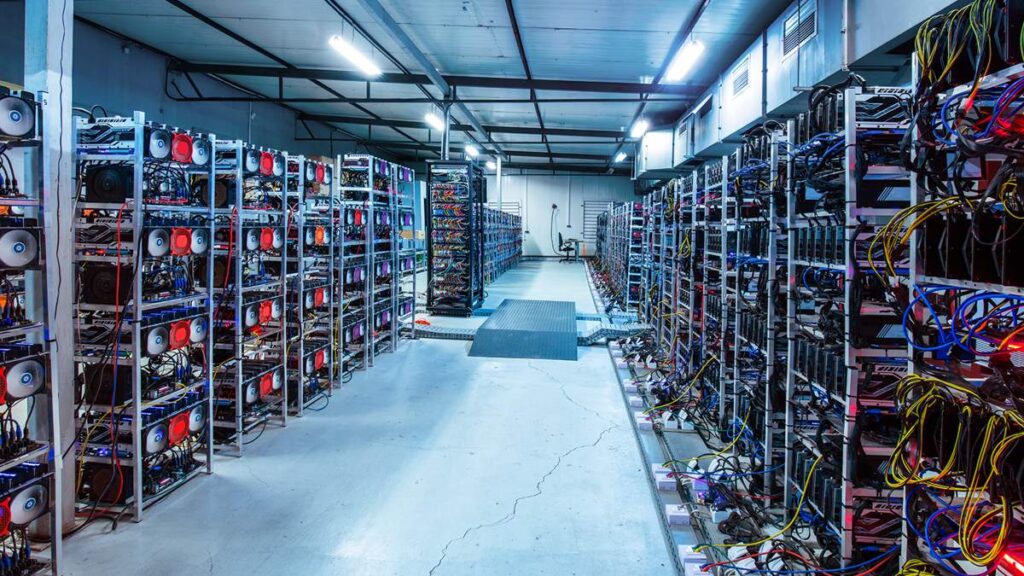In a bold and unprecedented move, Pakistan has formally designated 2,000 megawatts (MW) of its energy infrastructure just for Bitcoin mining and other cryptocurrency-related operations. Supported by the administration of Prime Minister Shehbaz Sharif and funded by the Ministry of Energy, this project represents a significant turn towards South Asian blockchain technology and digital assets. This action has made Pakistan one of the increasing countries investigating crypto mining as a strategic economic stimulus.
The consequences of this development, how it affects Pakistan’s tech and energy industries, geopolitical and environmental issues, and how it positions the nation in the larger global crypto economy are investigated in this paper.
Pakistan Shifts Toward Regulated Bitcoin Mining
Although Pakistan has always shown mistrust for cryptocurrencies like Bitcoin, recent events point to a legislative and policy change. Previously voicing doubts about cryptocurrency due to volatility and legal issues, the State Bank of Pakistan (SBP) has seen a rising worldwide interest in blockchain technologies and growing pressure to investigate other revenue sources, which have caused the government to change its position.
From opposition to regulation to controlled innovation, Bitcoin mining reflects a complex development in Pakistan’s introduction into industrial-scale manufacturing. The government sees promise in cryptocurrency mining as a national revenue strategy, especially amid continuous economic difficulties, including foreign exchange shortages and energy supply-demand imbalances. Thus, it is deciding to allocate a dedicated 2,000-MW energy capacity.
Green Energy Bitcoin Mining Zones Planned in Pakistan
Emerging private sector operators and the Ministry of Energy (Power Division) are working to channel government energy allotment for Bitcoin mining. Sources inside the Alternative Energy Development Board (AEDB) claim that the scheme calls for establishing special mining zones in underused Balochistan and Khyber Pakhtunkhwa (KP), where solar energy and hydropower abound.

The decision to commit 2,000 MW, almost equal to running over 1.5 million homes, is not haphazard. It is based on a thorough feasibility assessment with energy specialists and overseas blockchain consultants. To minimise environmental effects and maximise sustainability, the report advised running the mining activities on green energy sources like solar farms, wind corridors, and run-of-the-river hydro facilities.
Pakistan’s Strategic Push for Bitcoin Mining
There are several strategic reasons behind this distribution. First, Pakistan wants to establish itself as a centre of South Asian bitcoin innovation. Legalising and controlling mining will help the nation draw foreign direct investment (FDI) from mining pools, exchanges, and crypto businesses looking to grow operations in areas free of regulations.
Second, the scheme is also a component of a larger digital economy project underway by the Ministry of IT and Telecommunication. It is meant to raise Pakistan’s digital GDP contribution from 2% to over 10% in the next five years. Web3 technologies, NFT infrastructure, and distributed finance (DeFi) protocols are long on the government’s radar.
Finally, especially if the mined BTC is kept in a national crypto treasury, as has been done in nations like El Salvador, Bitcoin mining might provide millions in tax revenue and digital asset reserves, among continuous IMF discussions and the need to diversify income sources.
Pakistan’s Crypto Move Sparks Regional Shift
Pakistan’s ruling will probably have knock-on implications in South Asia and the Middle East, where nations are usually more wary of cryptocurrencies, particularly if the economic benefits show value. This audacious action positions Pakistan as a first mover in the regional crypto mining arms race. It might inspire policies in India, Iran, and the United Arab Emirates.

Economically, the proposal might give the nearby technological scene much-needed support. Startups concentrated in blockchain infrastructure, mining hardware manufacturing, cooling systems, and software optimisation should profit. Foreign crypto companies, including Bitmain, Hive Blockchain, and Marathon Digital Holdings, have already indicated interest in concurrently considering joint ventures in Pakistan.
Pakistan’s Green Shift in Crypto Mining
With critics pointing out enormous energy consumption and emissions, one of the main issues with Bitcoin mining worldwide is its carbon footprint. Direct reaction to these issues is Pakistan’s intention to rely more on renewable energy sources. The government wants to build a net-zero mining model by assigning underused green capacity in the Thar Desert, Ghazi-Barotha, and the Swat River.
Along with strict environmental impact assessments (EIA) as part of the licensing process, the government is now contemplating mandating carbon offset credits for mining corporations. This fits the standards of worldwide ESG (Environmental, Social, and Governance) compliance, hence Pakistan might become a preferred location for environmentally friendly crypto projects.
Pakistan Embraces Crypto Amid Mixed Reactions
The announcement has had a varied but generally hopeful reaction. Prominent blockchain supporter in Pakistan, Waqar Zaka, among others, praised it as a “historical turning point for Pakistan’s digital future.” Tech startups and miners see this as a chance to legalise what has thus been a mainly subterranean market and level the playing field.
On the other hand, several environmentalists and economists have called attention to concerns regarding how energy is prioritised for mining, amid continuous power outages in big cities. The government has replied that grid electricity is not destined for public consumption; only excess and renewable energy sources will be used.
Pakistan’s Green and Scalable Crypto Mining Strategy
With a 2,000-MW allocation, Pakistan ranks among major mining nations, including China (pre-2021 ban), Kazakhstan, Russia, and the United States. Pakistan’s approach is unique, though, in that it explicitly emphasises regulatory compliance from the start and green crypto mining.
Though their emphasis has more on transactional adoption than infrastructure-led mining, nations like El Salvador, which embraced Bitcoin as legal cash, also offer a comparative perspective. Pakistan’s infrastructure-centric approach might produce a more scalable and sustainable model, particularly in a post-carbon global economy.
Navigating Pakistan’s Crypto Future and Challenges
Pakistan has prospects and difficulties looking ahead. One may argue that it has the potential to lead to regional crypto infrastructure, attract billions of dollars in investment, and strengthen its digital economy. Conversely, execution hazards still exist, from geopolitical uncertainty and cybercrime threats to regulatory delays and environmental scrutiny. Experts advise a public-private partnership approach, more cooperation with worldwide crypto think tanks, and funding for cybersecurity and blockchain education initiatives to lower these risks.

